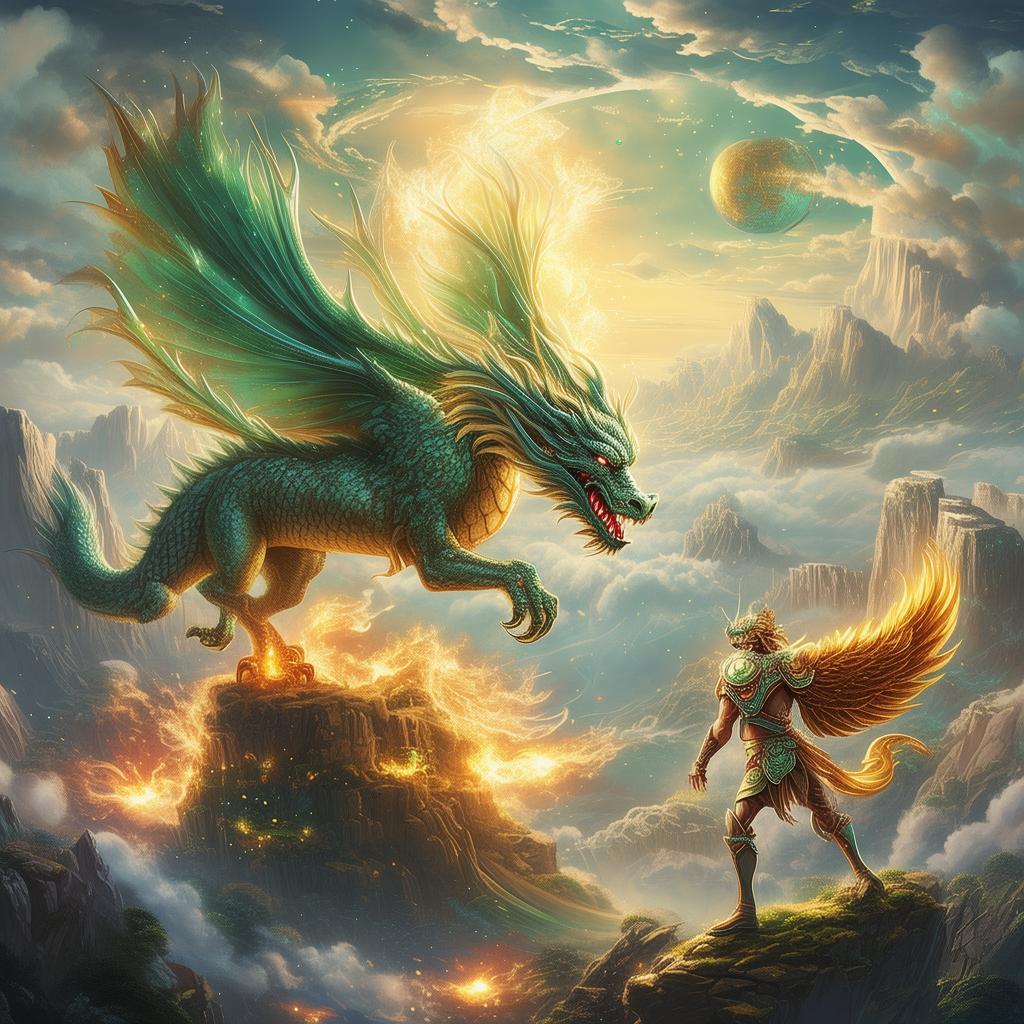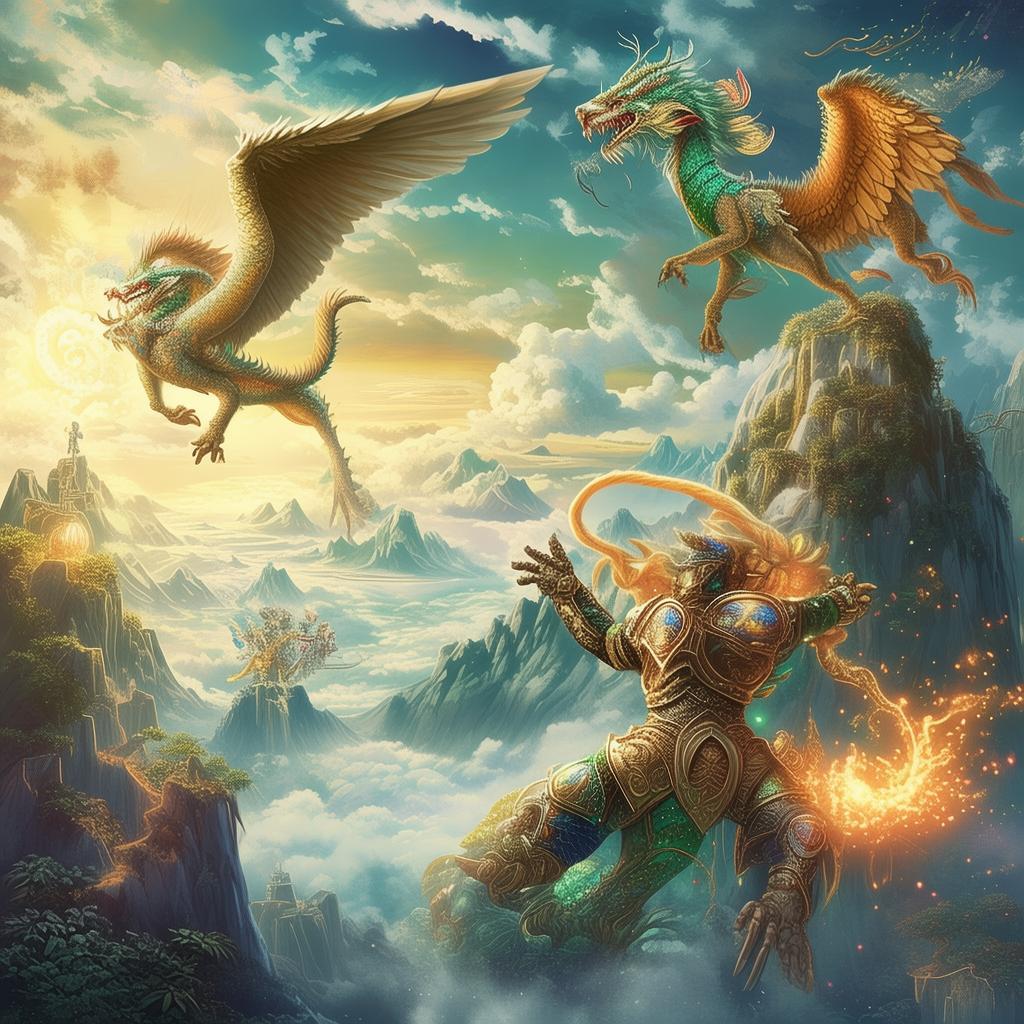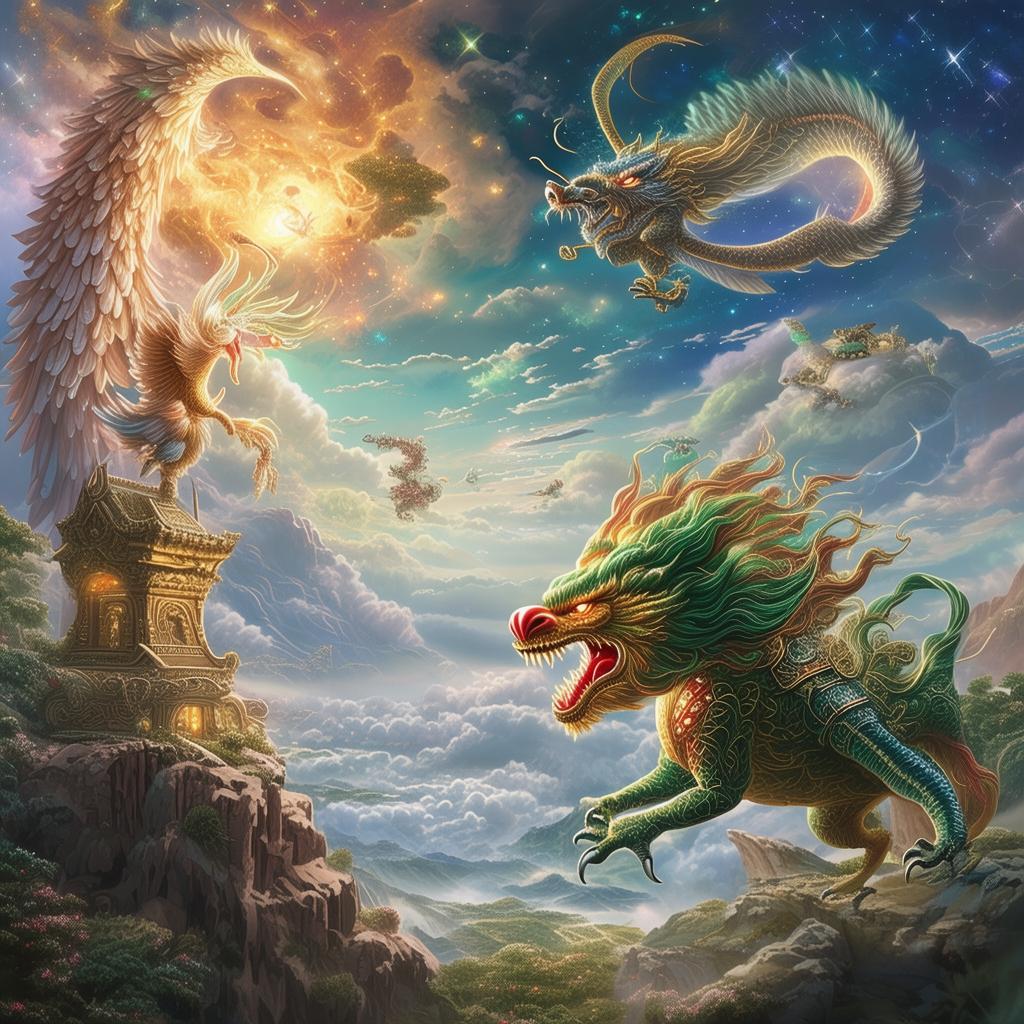The Last God's Redemption
In the ancient realm of Elysium, where the sky was painted with the hues of twilight and the earth whispered secrets of the cosmos, there existed a god of the faintest light. His name was Luminara, and he was the weakest of the pantheon. His power was a mere whisper compared to the thunderous roars of his brothers and sisters, the gods of fire, storm, and earth.
Luminara's domain was the twilight, the thin slice of the day when the sun dipped below the horizon and the moon began to rise. His light was the soft glow that illuminated the path for those who dared to venture into the dark. His followers were few, and his presence was often forgotten in the grand tapestry of Elysium's deities.
The other gods, with their mighty powers, were often the center of tales and songs. Luminara, however, was the subject of whispers and jokes, his name a punchline in the courts of the powerful. Yet, despite his weakness, he was a god, and within him lay the spark of divinity.
One day, as the twilight stretched across the land, Luminara received a vision. It was a vision of a world in turmoil, a world where the gods had forsaken their duties, and the people were left to suffer. The vision was clear and haunting, and it filled Luminara with a sense of purpose he had never known.
"I must do something," he whispered to the twilight, his voice barely audible. "I must help the people."
But how could he, with his puny light? The other gods would laugh at the thought. Yet, Luminara felt a strange warmth in his chest, a warmth that seemed to come from within his own heart.
He began to travel the lands, his light guiding the lost and comforting the weary. He spoke to the people, listened to their tales of woe, and offered them what little comfort he could. His light was not enough to banish the darkness, but it was enough to light a path through it.
As the days turned into months, Luminara's influence grew. The people began to see him not as a weak god, but as a guardian, a protector. They called upon him in their prayers, and he answered, though his light was often too faint to be seen.
One night, as Luminara sat atop a hill, gazing upon the stars, he felt a presence beside him. It was a young woman, her eyes filled with fear and hope.
"Luminara," she said, her voice trembling, "I have heard your light, and I have seen your kindness. Please, help me."
Luminara looked down at her, his heart heavy with the weight of his own powerlessness. "What is your need, child?"
The woman's eyes met his, and she spoke of a village that had been cursed by a more powerful god, a god who was jealous of the people's faith in Luminara. The village was suffering, and the people were dying.
Luminara knew that he could not defeat the powerful god, but he also knew that he could not stand by and watch the people suffer. He rose from the hill, his heart filled with a newfound resolve.
"I will help you," he said, his voice steady. "I will find a way."
The journey was long and arduous. Luminara traveled through the land, seeking guidance and allies. He found a wise old sage who taught him the secrets of the cosmos, and he discovered a hidden power within himself, a power that was not of his own making but of the people who believed in him.
With the sage's help, Luminara crafted a plan. He would use his newfound power to create a beacon of light, a light so bright that it would pierce through the darkness and reveal the truth of the curse.
The day of the beacon's creation was a day of great celebration. The people of the village gathered, their eyes filled with hope. Luminara stood before them, his heart pounding with anticipation.

As he chanted the ancient words, the light began to grow, a soft glow at first, then a bright flame that danced in the air. The people cheered, their voices rising like a tide against the darkness.
But as the light reached its peak, a shadow fell upon it. It was the powerful god, his face twisted with anger and envy. "You think you can challenge me, Luminara?" he roared.
Luminara stood his ground, his eyes meeting the god's. "I challenge not you, but the darkness that you have brought upon the people."
The god's power was immense, but Luminara's resolve was stronger. He chanted the words again, and the light grew, brighter and more intense. It was a light that could not be dimmed, a light that could not be extinguished.
The god's eyes widened in shock as the light enveloped him, and he was consumed by it. The curse was lifted, and the village was saved.
The people of the village, and all who had witnessed the event, realized the true strength of Luminara. He was not a weak god, but a god of the heart, a god of love and compassion.
Luminara's legend spread far and wide, and he was no longer the forgotten god of the twilight. He was the guardian of the people, the one who brought light to the darkest of times.
And so, in the twilight of Elysium, the weakest god found his true power, not in the might of his light, but in the strength of his heart.
✨ Original Statement ✨
All articles published on this website (including but not limited to text, images, videos, and other content) are original or authorized for reposting and are protected by relevant laws. Without the explicit written permission of this website, no individual or organization may copy, modify, repost, or use the content for commercial purposes.
If you need to quote or cooperate, please contact this site for authorization. We reserve the right to pursue legal responsibility for any unauthorized use.
Hereby declared.









